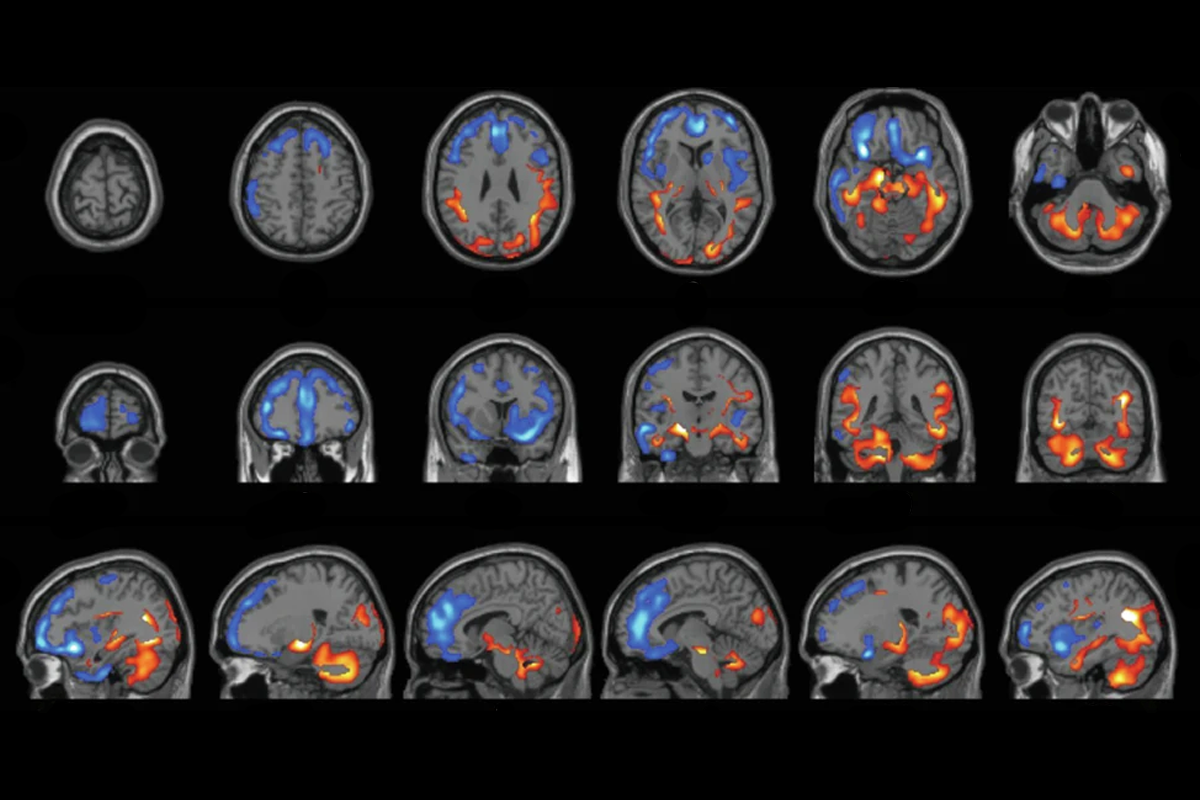- Altered cerebellar and cortical structures in autistic children are related and may give rise to changes in functional connectivity with maturation. Spectrum has previously reported on cerebellum size and neurodevelopmental conditions. Molecular Psychiatry
- Mice with diminished expression of the autism-linked gene SYNGAP1 in forebrain GABAergic interneurons show altered neural activity and social behaviors. Journal of Neuroscience
- People with autism or schizophrenia have altered AMPA glutamate receptor density, according to a brain imaging study. Molecular Psychiatry
Cerebellum structure; AMPA receptors; MAGEL2 gene
Here is a roundup of autism-related news and research spotted around the web for the week of 28 October.
By
Jill Adams
29 October 2024 | 1 min read

Amped up: The density of AMPA glutamate receptors is higher (red) in some brain areas in autistic people, and lower (blue) in others, compared with non-autistic people.
- Nearly all excitatory neurons in human cortical organoids are produced indirectly from intermediate progenitor cells. Cell Reports
- Autistic people’s brain regions show an altered maturation pattern, which appears to be tied to clinical traits. JAMA Psychiatry
- Mice missing the gene MAGEL2, a model of Prader-Willi syndrome, have heightened somatostatin activity in the lateral septum and altered sociability that can be mitigated by oxytocin and vasopressin. Cell Reports Medicine
tags:
Recommended reading

Organoid study reveals shared brain pathways across autism-linked variants
By
Giorgia Guglielmi
19 February 2026 | 4 min read

Sex bias in autism drops as age at diagnosis rises
By
Helena Kudiabor
13 February 2026 | 4 min read
Explore more from The Transmitter

Frameshift: Raphe Bernier followed his heart out of academia, then made his way back again
By
Katie Moisse
20 February 2026 | 8 min read

Single gene sways caregiving circuits, behavior in male mice
By
Natalia Mesa
18 February 2026 | 6 min read

Inner retina of birds powers sight sans oxygen
By
Federica Sgorbissa
18 February 2026 | 4 min read
Cite this article:
